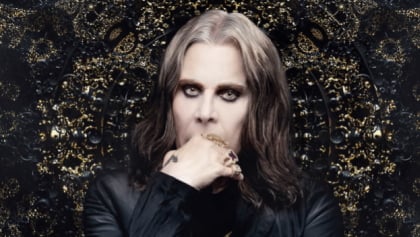Kehlani’s come a long way from her first forays in the music industry. Beginning her career in teen pop group PopLyfe (who placed fourth on America’s Got Talent), she’s spent the past 10 years winning over an army of fans, finding her signature sultry R&B and getting nominated for Grammy awards.
She kickstarted her solo career with the 2014 mixtape ‘Cloud 19’, but breakout success came the following year with the Grammy nominated ‘You Should Be Here’ – a soaring collection of R&B jams imbued with skittering electronics and punchy production, which fused brash hip-hop with sugary sweet neo-soul melodies.
Kehlani continued to develop this sound on debut full-length ‘SweetSexySavage’ – a deeply personal record of exuberant radio hits that evoked TLC and saw Kehlani address sexuality, mental health and her tough upbringing – and again on 2019 mixtape ‘While We Wait’. However, for her second album, ‘It Was Good Until It Wasn’t’, things have shifted.
In the break between her last mixtape and ‘It Was Good Until It Wasn’t’, Kehlani experienced a major change in her life: becoming a mother. Giving birth to her daughter in early 2019, she’s said that being a mum has had a huge impact on the album – and you can hear that in the music. Her lyrics are still profoundly honest, but the production and accompanying instrumentation is more complex. Gone are sherbet-laced choruses and skipping beats and in their place are brooding, soulful songs that ooze sex appeal. Basically – you can hear the growing up Kehlani’s done, with this album sounding like a distinct new chapter of her musical career.
Menacing album opener ‘Toxic’ sets the scene for what the rest of the record will sound like. Over a pulsating bass line and glitching synth whirrs Kehlani tartly tells an ex-lover: “You a damn drug, you’re toxic”, later adding the realisation, “Don Julio made me a fool for you”.
These sizzling, biting lyrics continue throughout. On ‘Everybody Business’ Kehlani savagely dissects the fascination people have with her personal life over sparse acoustic guitar, singing: “I hear every word they talk / Try not to care at all / I know it’s frontin’, don’t know me from nothin’”. Meanwhile on the sweltering ‘Open (Passionate)’, Kehlani hypothetically assesses the pros and cons of being in an open relationship: “What if I’m curious and caught up in the moment? / Will I mess around when you’re across the ocean / You’re not controlling”.
The moody production does sometimes threaten to become a bit samey. The glowering ‘Water’, a sluggish slice centred around a recurring piano riff, limps to the finish line; and collaboration with jazz musician Masego ‘Hate The Club’ lacks purpose, especially when nestled between superior tracks, the slow jam ‘Everybody Business’ and the slinky ‘Serial Lover’.
Thankfully, the record’s other guest spots act as welcome injections of energy. Kehlani appeared on Megan Thee Stallion’s third EP ‘Suga’, lending her vocals to the languid ‘Hit My Phone, and the rapper the repays the favour on ‘Real Hot Girl Skit’, a brief interlude that sees the rapper assert how good she is in bed. Canadian Streaming smash Tory Lanez lends his vocals to the ‘Can I’ – a glowering cut that elicits early Drake, if only Drizzy had a penchant for neo-soul. The most unusual team-up, however, centres on soulful British electro-whizz James Blake, who appears on album highlight ‘Grieving’. Meshing the silky R&B that permeates the entire album with Blake’s trippy, skittish electronics and woozy layered vocals, the two artists heartbreakingly dismember a failing relationship.
Kehlani’s obvious talent shines through on moments like this. Her new brooding sound frustratingly swamps the vivaciousness that fans loved on previous releases, as well as distracting from searing lyrics. ‘Serial Lover’, which sees Kehlani sing unashamedly about past relationships (“I got bodies I’m going to take to the grave / I’ve got girls I want to give my last name / No regrets, Don’t got no shame”) is the perfect middle-ground, combining the dark new production with a lithe Destiny’s Child-tinted flute riff and strutting beats.
It’s understandable for an artist to want to change their sound, but the problem with ‘It Was Good Until It Wasn’t’ is that it loses sight of the sheer brilliance Kehlani has demonstrated on previous releases. The dark and sexy new songs shine their brightest when coated with a layer of her previous sparkle; which makes the artist’s second album a fine but frustrating release.
Details

Release date: May 8
Record label: Atlantic
The post Kehlani – ‘It Was Good Until It Wasn’t’ review: a newly brooding sound takes the shine from her sparkling R&B appeared first on NME Music News, Reviews, Videos, Galleries, Tickets and Blogs | NME.COM.








